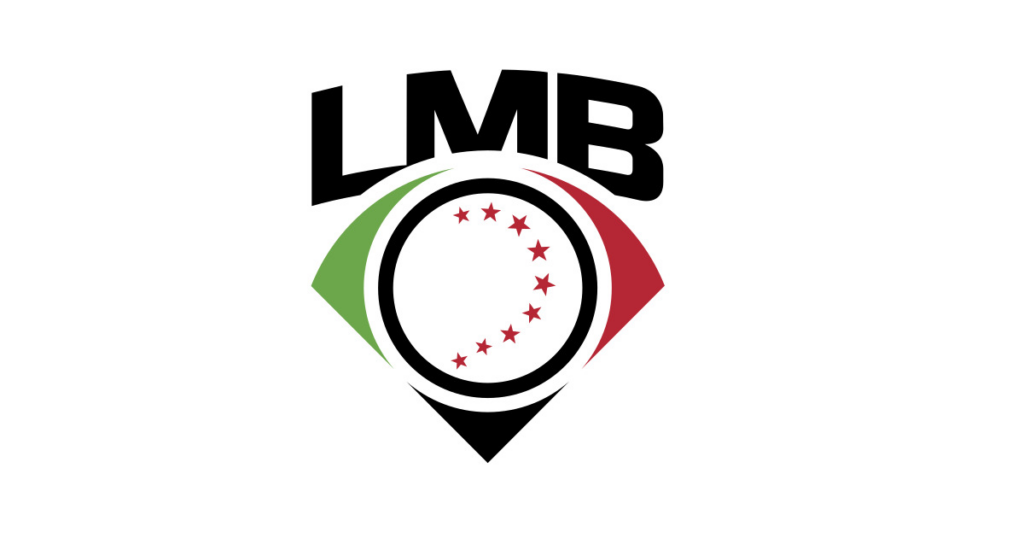Mexican Baseball League: Dive into the legacy and vibrant culture of one of the oldest professional baseball leagues outside the U.S. Discover its rich history from 1925 to its modern independent status, spotlighting legendary players like Fernando Valenzuela. Explore its vital role in uniting communities, fostering emerging talent, and grappling with challenges while forging pathways for sustainable growth and cultural impact.
The Mexican Baseball League: A Legacy of Passion and Talent in Sports

The Mexican Baseball League captures our imagination with its vibrant history and dynamic gameplay. As one of the oldest professional baseball leagues outside the United States, it offers a unique blend of cultural flair and sporting excellence. Fans from all over the globe are drawn to its passionate atmosphere and the thrilling performances of its talented players, similar to the fervor seen in the nippon professional baseball league in Japan.
We find ourselves captivated by the league’s ability to showcase emerging talent while honoring traditions that date back nearly a century. The Mexican Baseball League isn’t just about the games; it’s a celebration of community, heritage, and the sheer love of baseball, akin to the cultural impact seen in the roberto clemente professional baseball league. As we delve deeper into this fascinating league, we uncover stories that highlight its significance in both the sports world and Mexican culture.
Key Takeaways
- The Mexican Baseball League (LMB) boasts a rich history, intertwining Mexican culture and sporting tradition since its foundation in 1925.
- Operating independently from Major League Baseball since 2021, the LMB embraces a unique structure with 20 teams and a two-major league system to enhance competitive gameplay.
- Legendary players like Fernando Valenzuela and Bobby Avila highlight the league’s contribution to baseball, showcasing talent that has impacted not only the LMB but also Major League Baseball.
- The league plays a significant role in Mexican sports culture, promoting community engagement and economic development while encouraging widespread participation in baseball, much like the influence of the dominican professional baseball league in the Dominican Republic.
- Despite challenges like attracting top talent and financial pressures, the LMB’s future growth potential lies in innovation, safety measures, and diversifying revenue sources to sustain its influence domestically and internationally.
History Of The Mexican Baseball League
The Mexican Baseball League (LMB) stands as a testament to the evolution of baseball in Mexico, blending historical roots with cultural significance. By exploring its early beginnings and growth, we gain insight into how this league emerged as a cornerstone of Mexican sports.
| Year | Milestone/Event | Description |
|---|---|---|
| 1846 | Baseball’s Introduction to Mexico | Possibly brought by American soldiers during the Mexican-American War or via Cuban influence. |
| 1925 | Founding of LMB | Established by sports journalist Alejandro Aguilar Reyes and player Ernesto Carmona. |
| 2021 | Independence from Minor League Baseball | LMB became an independent league, enhancing autonomy and structure. |
| 2018 | Introduction of Two-Major League System | Adopted a system dividing the season into two halves to boost competitiveness. |
Early Beginnings
Baseball found its way to Mexico as early as 1846. Introduced potentially by American soldiers during the Mexican-American War or perhaps through Cuba in the 1880s, it quickly gained traction. The construction of the Mexican Central Railway accelerated its popularity amidst the sweeping American economic influences of the 1880s. On June 28, 1925, sports journalist Alejandro Aguilar Reyes and baseball player Ernesto Carmona founded the LMB, which started with six teams that have since become defunct.
Development And Growth
In its initial years, the league faced numerous challenges yet managed to progress steadily. As the LMB expanded, it continued to adapt and thrive, reflecting the resilience and passion of its participants. Over time, the league has demonstrated a notable ability to navigate obstacles, preserving its legacy while fostering new talent.
Structure And Format
The Mexican Baseball League, or Liga Mexicana de Béisbol (LMB), operates as an independent league, having severed ties with the Minor League Baseball system in 2021. This shift underscores the league’s adaptability and independence in the global baseball landscape.
| Phase | Description |
|---|---|
| Regular Season (Two Halves) | Teams compete in two 54-57 game halves, with performance-based point allocation influencing playoffs. |
| Playoffs | Top-performing teams from each half qualify for the playoffs. |
| Championship Series | Best-of-seven series determining the league champion. |
Teams And Divisions
The LMB features 20 teams as of 2024. Over the years, the league has experienced variations in team numbers, evolving from its original count. The diversity of teams across various regions highlights the league’s widespread appeal in Mexico and its role in national unity.
| Team Name | City/Region | Notable Achievements |
|---|---|---|
| Diablos Rojos del México | Mexico City | One of the most successful teams with multiple championships. |
| Tigres de Quintana Roo | Cancun | Renowned for competitive prowess and historic wins. |
| Acereros de Monclova | Monclova | Recent champions known for strong batting lineups. |
| Sultanes de Monterrey | Monterrey | Traditionally competitive with a large fan base. |
| Toros de Tijuana | Tijuana | Strong recent performance and passionate support. |
Season Schedule
The LMB employs a two-major league system initiated in 2018, dividing the season into two halves. Each half includes 54 to 57 games per team. This format awards points based on team performance, influencing playoff positions. This system ensures dynamic competition, as teams strive for excellence in each half of the season.
Notable Players And Achievements
The Mexican Baseball League (LMB) and Mexican players in Major League Baseball (MLB) boast a rich history filled with legendary figures and record-breaking performances.
| Player Name | Legacy/Contribution | Description |
|---|---|---|
| Fernando Valenzuela | “Fernandomania” & MLB Star | Cy Young & Rookie of the Year in 1981, World Series champion. |
| Bobby Ávila | AL Batting Champion (1954) | Excelled as second baseman, known for his offensive skills. |
| Aurelio Rodríguez | Defensive Wizard | Renowned for his exceptional fielding abilities in MLB. |
Legendary Figures
Fernando Valenzuela, an iconic Mexican baseball player, debuted in 1981, leaving a legacy comparable to other baseball legends like roy halladay. Valenzuela ignited “Fernandomania” with his extraordinary achievements, winning both the Cy Young and Rookie of the Year awards that same year. He played a crucial role in the Los Angeles Dodgers’ World Series championship in 1981 and later threw a no-hitter in 1990. His impact on baseball transcends performance, as he inspired a generation of fans and athletes.
Another notable figure, Bobby Avila, achieved great success as a second baseman, primarily with the Cleveland Indians. Avila, a three-time All-Star, won the American League batting champion title in 1954 with a .341 average. His skill and dedication on the field left a lasting legacy in the MLB and the LMB.
Aurelio Rodríguez is famed for being a defensive wizard. Rodríguez, who spent most of his career with the Detroit Tigers, dazzled fans with his exceptional fielding skills. His prowess made him a standout player and a source of pride for Mexican baseball enthusiasts.
Record-Breaking Performances
Valenzuela’s career serves as an example of record-breaking performances in the LMB and MLB. Winning the Cy Young and Rookie of the Year awards simultaneously remains a rare achievement, showcasing his talent and adaptability.
Bobby Avila’s standout season in 1954, with a .341 batting average, demonstrated his offensive expertise and positioned him as a formidable competitor in the league. His achievements highlighted the offensive capabilities of Mexican players.
Rodríguez, with his unmatched defensive skills, became synonymous with elite fielding, achieving record defensive metrics and earning respect from players and fans alike.
The Mexican Baseball League’s history of notable players and significant achievements showcases its influence on the broader baseball community. These legendary figures have made invaluable contributions, elevating the league’s status both in Mexico and internationally.
The Role Of The Mexican Baseball League In Sports Culture
The Mexican Baseball League plays a pivotal role in sports culture in Mexico, bringing communities together and celebrating a shared passion for baseball.
Influence On Mexican Sports
Community engagement is a core aspect of the LMB’s contribution to Mexican sports. The league offers children and teenagers opportunities to engage in baseball, emphasizing physical activity, teamwork, and fundamental values like perseverance and sportsmanship. This involvement fosters youth development and helps instill a lifelong appreciation for sports.
Baseball holds deep cultural significance, particularly in northern Mexico, where it celebrates Mexican pride and identity through events and traditions. The LMB’s influence extends beyond entertainment, enriching Mexico’s cultural tapestry and encouraging widespread participation in baseball.
The league also plays a substantial role in the economy, generating revenue through ticket sales, merchandise, and sponsorships. This economic impact creates jobs and supports local businesses, enhancing the league’s importance within Mexican sports culture.
International Impact
While deeply rooted in Mexican sports, the LMB’s impact transcends borders as it contributes to the global baseball community. Many talented players from the league have achieved success in Major League Baseball (MLB), showcasing the quality and competitiveness of Mexican baseball.
The league acts as a platform for aspiring baseball players, providing exposure and opportunities to compete at higher levels. This international recognition of talent contributes to Mexico’s standing in the world of sports and enhances the visibility of the LMB beyond national boundaries.
By fostering intense competition, the league consistently produces players capable of reaching new heights on the international stage. This serves as a testament to the LMB’s role in shaping the sports landscape both domestically and internationally.
Challenges And Future Prospects
The Mexican Baseball League (LMB) faces numerous challenges but also holds potential for future growth. We’ve observed critical areas that warrant discussion.
| Challenge/Opportunity | Description |
|---|---|
| Player Retention | Attracting and retaining top talent in the face of lucrative offers abroad. |
| Financial Stability | Reducing reliance on ticket and beer sales by diversifying revenue streams. |
| International Partnerships | Collaborations with global leagues to enhance player conditions and visibility. |
| Safety Measures | Addressing social and political instability to ensure player and fan safety. |
Current Challenges
Top prospects often opt for leagues offering better salaries, leaving the LMB with veterans and minor-league players. This player dynamic intensifies the need for strong performances to maintain job security. Additionally, political and social instability raises safety concerns for players, impacting participation and morale.
Financial pressures weigh heavily on the league. Teams heavily depend on ticket and beer sales, creating a reliance on high attendance. Poor game attendance can lead to immediate roster changes and financial instability. These economic constraints necessitate strategies to enhance fan engagement and revenue streams.
Future Developments
Innovation and change offer pathways to address these challenges. Exploring partnerships with international leagues may improve player conditions and attract top talent. By prioritizing safety measures, the league can alleviate concerns tied to regional instability, fostering a more secure environment.
Efforts to diversify revenue sources are essential for growth. Expanding merchandise sales and investing in digital platforms can reduce reliance on in-stadium sales. Implementing community outreach programs could strengthen local ties and boost attendance, securing a stable fan base for the future.
Conclusion
The Mexican Baseball League stands as a testament to the enduring spirit of baseball in Mexico. Its rich history and cultural significance continue to captivate fans and foster community connections. By embracing change and nurturing talent, the LMB remains a vital part of the global baseball landscape. As we look to the future, the league’s commitment to growth and innovation ensures it will keep thriving, preserving its legacy while inspiring new generations of baseball enthusiasts.
Frequently Asked Questions
What is the Mexican Baseball League (LMB)?
The Mexican Baseball League (LMB) is one of the oldest professional baseball leagues outside the United States, officially founded on June 28, 1925. It is renowned for its unique blend of cultural elements and sporting excellence, playing a significant role in promoting baseball within Mexico and showcasing emerging talent, as well as veterans in the sport.
How did baseball originate in Mexico?
Baseball likely came to Mexico around 1846, introduced either by American soldiers or through Cuban influence. This set the stage for the development of the Mexican Baseball League in the early 20th century, which has since evolved into an essential part of Mexican sports culture.
How is the LMB structured?
As of 2024, the LMB comprises 20 teams and operates independently after severing ties with the Minor League Baseball system in 2021. The league uses a two-major league system, dividing the season into two halves, with each team playing 54 to 57 games per half, fostering a competitive environment.
Who are some of the notable players from the LMB?
Notable players from the LMB include Fernando Valenzuela, known for “Fernandomania,” Bobby Ávila, a celebrated offensive player, and Aurelio Rodríguez, acclaimed for his defensive skills. These figures represent the league’s profound impact on the baseball community both in Mexico and internationally.
What challenges does the LMB currently face?
The LMB faces challenges such as top prospects leaving for higher salaries in other leagues, political and social instability affecting safety, and financial pressures due to ticket sales dependency. These issues impact player participation and fan attendance, requiring strategic management for long-term success.
How does the LMB contribute to Mexican culture?
The LMB contributes to Mexican culture by uniting communities through baseball, offering youth development opportunities, and enriching the cultural tapestry. It has a significant economic impact, supporting local businesses and promoting national unity through shared passion for the sport.
What potential growth pathways exist for the LMB?
Potential growth pathways for the LMB include forming international partnerships to enhance player conditions, implementing safety measures, diversifying revenue sources, and expanding community outreach. These strategies aim to bolster attendance, secure a stable fan base, and attract top talent to the league.


